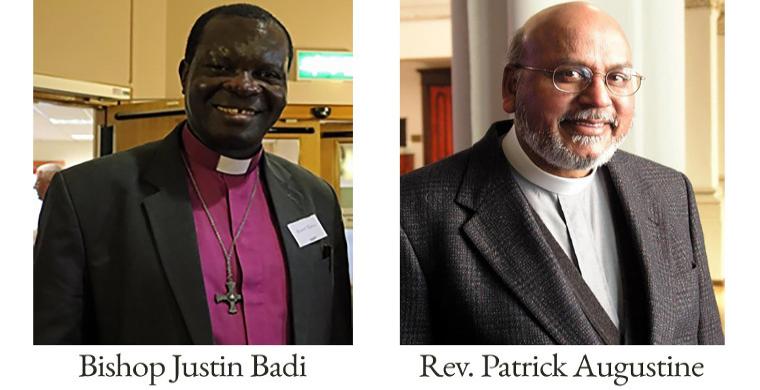U.S. Episcopal Priest only has six-month remit to stay in South Sudan
Bishop Augustine's consecration and views do not reflect the stand of South Sudan Province
"He is not a bridge for reconciliation between The Episcopal Church and South Sudan," says Archbishop Badi
By David W. Virtue, DD
www.virtueonline.org
June 20, 2019
An American Episcopal priest who was ordained an assistant bishop in the Diocese of Bor in South Sudan did not get the approval of the House of Bishops of the Province of the Episcopal Church of South Sudan and will have to leave the country in six months.
A statement released by the Archbishop of South Sudan, the Most Rev. Justin Badi Arama, said that misinformation about his consecration had been spread about his appointment (by the ENS) and he bluntly said that the Rev. Patrick Augustine was not a bridge-builder for reconciliation between the ECSS and TEC.
The Sudanese Episcopal Church repudiated the election of Bishop V. Gene Robinson to the episcopacy and the recent same-sex marriage resolution (B012) passed by the Episcopal House of Bishops.
"We already have a permanent bridge that connects us with all provinces of the Anglican Communion. That strong bridge is the Lord Jesus Christ who himself said 'My mother and brothers are those who hear God's word and put it into practice,'" (Luke 8:21), wrote Badi.
"The consecration of Patrick Augustine was an arrangement by the Diocese of Bor in recognition of his personal services and support to the Diocese of Bor over 30 years, in respect of this, the Diocese of Bor consecrated him as the assistant bishop of Bor for six months only."
Relations between The Episcopal Church and Sudanese Anglicans have been rocky in the past because of General Convention's decisions to fully include LGBTQ people in the life of The Episcopal Church. Augustine told ENS that he supports convention's actions. "We do it in the name of compassion and justice. They disagree with us on conservative theological grounds," he said.
"I have no other agenda" than to "be a bridge to bring reconciliation" between South Sudan and the United States, Augustine told ENS.
Apparently, the Sudanese leadership does not see it that way.
END














